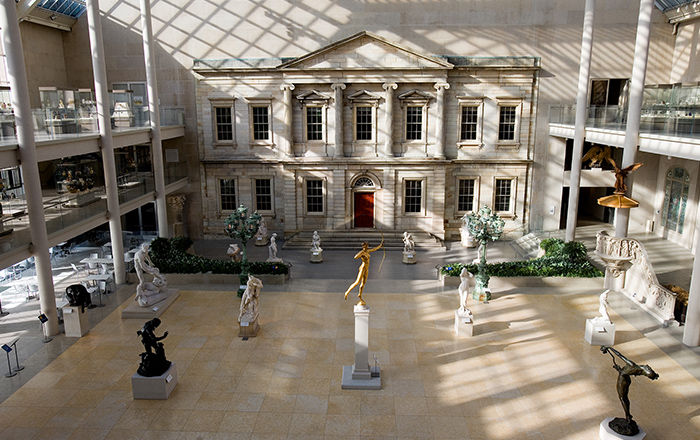Returned to lender The Met accepts temporary loans of art both for short-term exhibitions and for long-term display in its galleries.
Fox Hunt
Winslow Homer American
Not on view
Fox Hunt is widely viewed as Homer’s most haunting late "naturalist" painting. Rendered in a manner that suggests a close study of Japanese woodblock prints, it dramatically embodies the recurrent theme of conflict in nature. The subject is novel for the artist, though he had been depicting scenes of hunting and fishing for years. Here, Homer has removed any trace of human presence and focused on the Darwinian struggle of natural selection in the animal kingdom: during a bleak Maine winter, an ominous flock of hungry crows become predators and a fox, desperately moving through heavy snow drifts, the prey. That the artist appears to have painted the scene from the hunted creature’s perspective, identifying with its plight, only heightens the tension.
Due to rights restrictions, this image cannot be enlarged, viewed at full screen, or downloaded.

